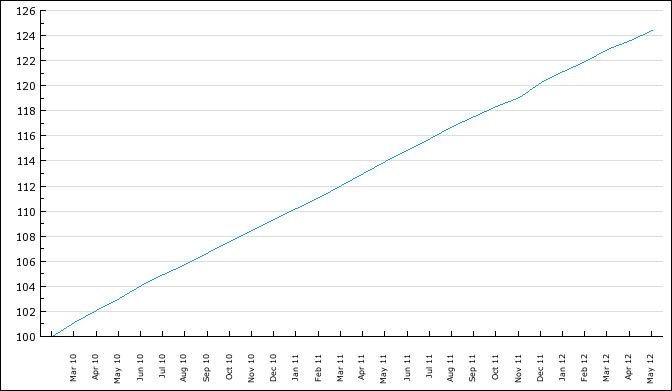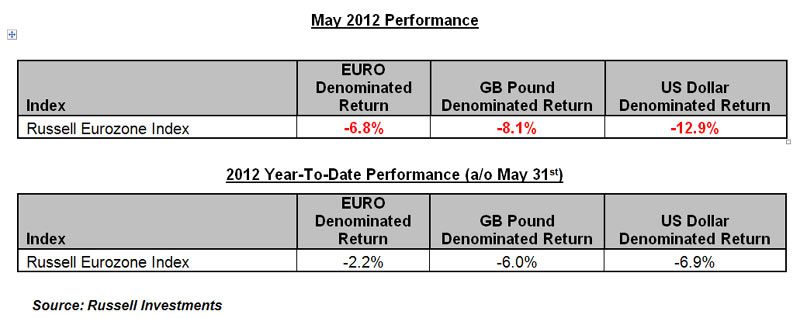Enterprise budgeting and planning challenges drive better EPM solutions
Published by Gbaf News
Posted on July 31, 2012
6 min readLast updated: January 22, 2026

Published by Gbaf News
Posted on July 31, 2012
6 min readLast updated: January 22, 2026

By Dave Francis, co-founder and director, Axiom EPM UK
As an Enterprise Performance Management, or EPM solutions firm, part of our commitment to our clients is to understand the challenges finance directors and planning executives face. So we recently conducted a survey to assess attitudes and challenges facing businesses in their budgeting and planning processes. 
With many regions confirming double-dip recessions and the majority of industrial sectors in the midst of the most competitive economic market conditions in decades, accurate and consistent budgeting and forecasting have never been more important. While time-consuming and complex, the practice proves difficult for many business users and in the end, can still deliver inaccurate and misleading results.
Our survey began by asking finance directors what areas their finance teams were prioritising for improvement over the next year. The response was split, with 44 percent of respondents putting the greatest emphasis in getting a better handle on understanding and measuring profitability and exactly the same percentage said they needed to further define key performance indicators (KPIs) and operating metrics. The next most popular response — selected by 42 percent of our sample — was the need to publish more relevant information to users. 
These results chime strongly with our own expectations of the market. We certainly anticipate that finance departments will demand modelling flexibility and intuitive tools that will give them greater control over their budget lifecycle and predict financial outcomes more accurately. We also understand the desire to share more relevant information with key individuals by turning impenetrable enterprise data into insightful, accessible information than can be used by the broadest set of end users.
Having established the great importance that finance directors and departments place on the role of planning across their organisations, we were understandably keen to know the duration of their typical planning cycles. When asked how long their planning cycles take, 31 percent completed in less than two months, 49 percent said two to three months, 17 percent thought four to six months, while just 2 percent believed their planning cycles spanned more than six months.
Effective workflow capabilities enable distributed planning processes that are highly automated and centrally controlled for even the most distributed entities. Email alerts and real-time status updates will let administrators know what’s going on, while finance teams can enjoy having more time to spend on higher-value activities, such as scenario modelling and financial analysis.
Annual budgeting has become an increasingly complex and time-consuming process because of the growing number of cost centres now found across the average large enterprise. When asked how many entities or cost centres contributed to their annual budgets, 60 percent replied less than 50, but 26 percent said between 50 and 300, while 11 percent of respondents accounted for more than 300 cost centres.
A company with a large number of cost centres will spend more time managing financial data and harnessing spending across multiple departments and projects because it will typically create a separate budget for each of these entities. While departmentalised cost centres keep budgets organised and segmented, this doesn’t come without its issues, and any tools that can help streamline and accelerate the process are clearly welcomed. In order to react and address ever-changing business conditions, organisations want to be able to quickly model and adapt multiple financial plans.
When asked how closely linked the budgeting process is with strategic planning across their organisations, 15 percent of organisations said they were disconnected and just 31 percent said they were closely linked.
A high level of cross-discipline management information is needed to ensure businesses are in a position to make confident business decisions. Finance departments need to work with key business stakeholders to ensure capital needs display consistency across diverse spends and initiatives — while businesses as a whole must optimise capital portfolios across projects that truly align with broader needs. However, 30 percent of respondents said that operational statistic and driver information is not part of their planning model, while just 26 percent admitted that this information is incorporated into their planning model, but was often not used.
So are enterprise-class finance teams spending their time and efforts as their management would like? We asked finance directors and planning executives to rate the breakdown of their team workloads against how they would ideally like to see their efforts apportioned. We discovered that finance teams must spend 59 percent of their time focused on budgeting and planning compared to a target figure of just 30 percent. It’s a similar story with reporting and scorecards: the same teams were spending 48 percent of their time on them, rather than an ideal 28 percent. And our responses very clearly revealed the area of financial business that is suffering most as result of these planning and reporting inefficiencies — finance teams are only able to devote nine percent of their efforts on strategic growth, despite the fact that their directors would like to see them working in this area 46 percent of the time.

The solution to these imbalances and resulting shortfall in focus strategic growth activities is clearly to dramatically increase budgeting and planning efficiencies, plus reporting and scorecards. Fortunately, technology is at hand to relieve the unwanted burden and give finance teams the time they needed to concentrate on desirable strategic growth. The best EPM software is designed to reduce the complexity and time overheads associated with budgeting and planning while improve accuracy and eliminating erroneous results. It slashes preparation and process time, instills efficient workflow controls across organisations and delivers the kind of savings that engender buy-in across any business.
Financial reporting with EPM also transforms valuable enterprise data into shared information that enables more individuals across a business to make insightful and timely decisions. Intuitive reporting tools eliminate the need for finance executives to learn new technical skills and empower all finance personnel to monitor and manage performance by putting data at their fingertips in a form they understand.
All of this EPM functionality frees financial teams hampered by clumsy time-consuming processes so they can spend more time planning strategic growth.
EPM can also help organisations align human and capital resources to facilitate this strategic thinking, while enabling executives to spend more time evaluating KPI trends that highlight the impact of various industry developments, while providing insight into performance results against defined KPIs and across well-defined project milestones.
We can only improve our solutions further if we listen to those businesses we’re trying to support and continue our efforts to learn more about the challenges organisations are facing with their performance management processes. We hope you will take part in future Axiom EPM surveys and push our understanding of real-world performance management concerns further still, so that we can continue to build solutions that make a genuine difference to genuine businesses.
For a full copy of the Axiom EPM UK financial survey please visit http://info.axiomepm.com/ChallengesinBudgetingPlanning.html
www.axiomepm.com
Explore more articles in the Finance category
